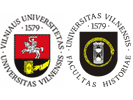The present historiosophical and sociological searches for an adequate study of society and history ask for a reflection of today’s historical reality and for a reflection of the method of its analysis. Today’s necessity for a sociological search in Lithuania can not limit itself with a search for fashionable sociological theory with the aim of inserting (squeezing) our social reality into it, but it must carefully study the concrete historical background of the present social situation and find an adequate interpretation of it. The historical investigation of the society could gain by addressing the main problems of contemporary theoretical research in sociology. One of them is the problem of the agent of social reality, without reducing it to social structures or to social individuals as a set of social roles, which are imputed on him/her /her society.
The most realistic problem today that sociology reflects is the subordination of the two levels of social reality – “social physics” (the reality determined by the causality of material interests ) and “social metaphysics” (the reality teleologically organized by definite value orientations and ideas). The present crisis of social transformation in Eastern European countries shows the pseudo-morphosis of Western social-organisational structures due to a hasty transplanting of them into the post-Communist social reality. This asks a question about the state of “social metaphysics” in these societies, as the crisis evidently shows a lack of correspondence between the system of values and social-organizational structures.
The solving of the problem is not found in acquiring a “know how” which will be obtained in the nearest future. The problem consists in a simultaneous adequate response to the challenge of postmodernity. The postmodernity itself breaks the correspondence of a “social physics” (organizational structures) with a “social metaphysics”(system of values) as it produces a pluralistic (not hierarchical) “metaphysics” while keeping a hierarchy in “physics,” where the subordination of the individual to the social structures is even strongerhan in the era of modernity.
This challenge appears together with another one – the necessity of founding a democratic national state (consolidating the nation on the basis of common aims when the interest of community is destroyed by the negative experience of communist collectivity) – the present situation of European unification. This brings with it the danger of not obtaining a national identity and independence.
The entire situation asks for a necessity of deep reflection and conscious choice, i. e. a search for a new subject (agent) of social reality, because the reduction of it to social structures or to a social individual as the set of imputed social roles in this situation of multi-sided challenge is already not adequate. This invites sociology to overcome a deterministic standpoint and to turn from a functional approach towards social phenomena to a substantial one. This means to turn to the person as an agent of social reality; this person being the only one who unites in himself/herself a social experience (personification of social structures) with a deliberate choice (personalized structure of values). He/she can be a real agent, not only by combining both levels of social reality (“social physics” and “social metaphysics”) but, also, in overcoming in another split of social reality between the social system and the “life world” sociological theory. This can help historiosophy overcome a split between culture as the history of ideas and the historiographical fixation of separate historical events and facts.
| 

 dizainas ir programavimas giriaus
dizainas ir programavimas giriaus  dizainas ir programavimas giriaus
dizainas ir programavimas giriaus